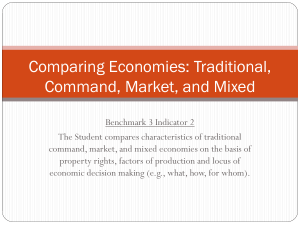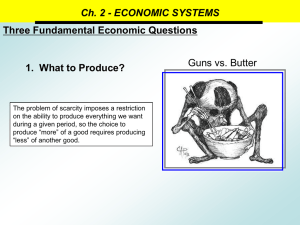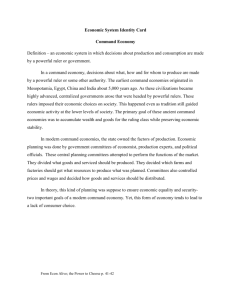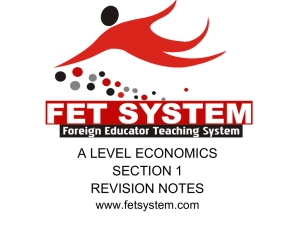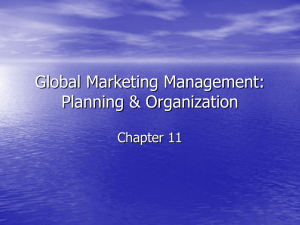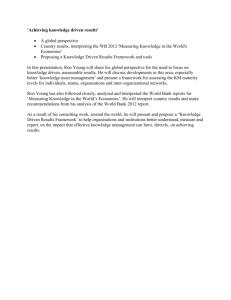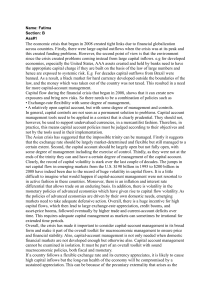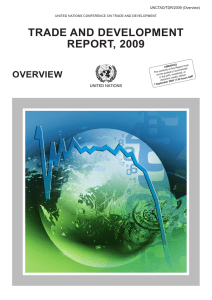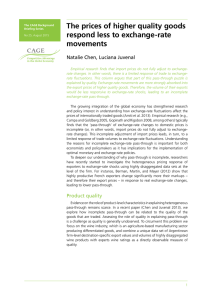Midterm Study Guide - Division of Social Sciences
advertisement
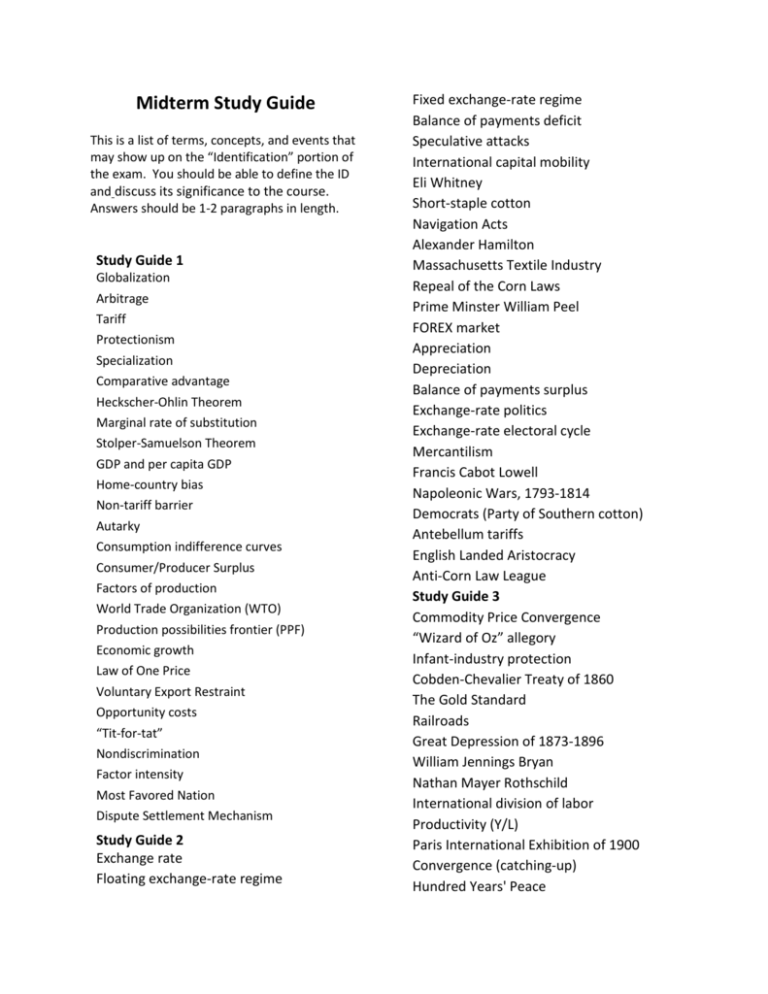
Midterm Study Guide This is a list of terms, concepts, and events that may show up on the “Identification” portion of the exam. You should be able to define the ID and discuss its significance to the course. Answers should be 1-2 paragraphs in length. Study Guide 1 Globalization Arbitrage Tariff Protectionism Specialization Comparative advantage Heckscher-Ohlin Theorem Marginal rate of substitution Stolper-Samuelson Theorem GDP and per capita GDP Home-country bias Non-tariff barrier Autarky Consumption indifference curves Consumer/Producer Surplus Factors of production World Trade Organization (WTO) Production possibilities frontier (PPF) Economic growth Law of One Price Voluntary Export Restraint Opportunity costs “Tit-for-tat” Nondiscrimination Factor intensity Most Favored Nation Dispute Settlement Mechanism Study Guide 2 Exchange rate Floating exchange-rate regime Fixed exchange-rate regime Balance of payments deficit Speculative attacks International capital mobility Eli Whitney Short-staple cotton Navigation Acts Alexander Hamilton Massachusetts Textile Industry Repeal of the Corn Laws Prime Minster William Peel FOREX market Appreciation Depreciation Balance of payments surplus Exchange-rate politics Exchange-rate electoral cycle Mercantilism Francis Cabot Lowell Napoleonic Wars, 1793-1814 Democrats (Party of Southern cotton) Antebellum tariffs English Landed Aristocracy Anti-Corn Law League Study Guide 3 Commodity Price Convergence “Wizard of Oz” allegory Infant-industry protection Cobden-Chevalier Treaty of 1860 The Gold Standard Railroads Great Depression of 1873-1896 William Jennings Bryan Nathan Mayer Rothschild International division of labor Productivity (Y/L) Paris International Exhibition of 1900 Convergence (catching-up) Hundred Years' Peace Pax Britannica Telegraph Ocean shipping Most-Favored-Nation clause Irish Potato Famine “Price-specie-flow” mechanism Mass production Areas of recent settlement Friedrich List 2nd Industrial Revolution Study Guide 4 Staple Theory "Progressive" crops "Reactionary" crops Economies of scale King Leopold Plantation Economies Conquest Economies Economic theory of imperialism “Site-specific” foreign investments Extension of the franchise Enclave Economies Settler colonialism Social Infrastructure Divergence puzzles Settlement Economies Scramble for Africa “Poor Institutions” Path Dependence Soil and climatic conditions Colonial sugar economies Meiji Revolution of 1868 Study Guide 5 Grain Invasion Kathe Kollwitz* Great Depression of 1873-96 League of Nations* Treaty of Versailles* Hyperinflation* Consumer durables revolution* Integrated multi-plant corporation* Rise of organized labor* Competitive devaluations* Chinese Exclusion Acts Coalition of Iron and Rye War Debts and Reparations* Dawes Plan of 1924* Cyrus McCormick’s Mechanical Reaper* Junkers Keynes' Economic Consequences of the Peace* Liberty Loans* Smoot-Hawley Tariff Act of 1930* Liquidationism* * Items marked with an asterisk will not be included on the midterm exam
